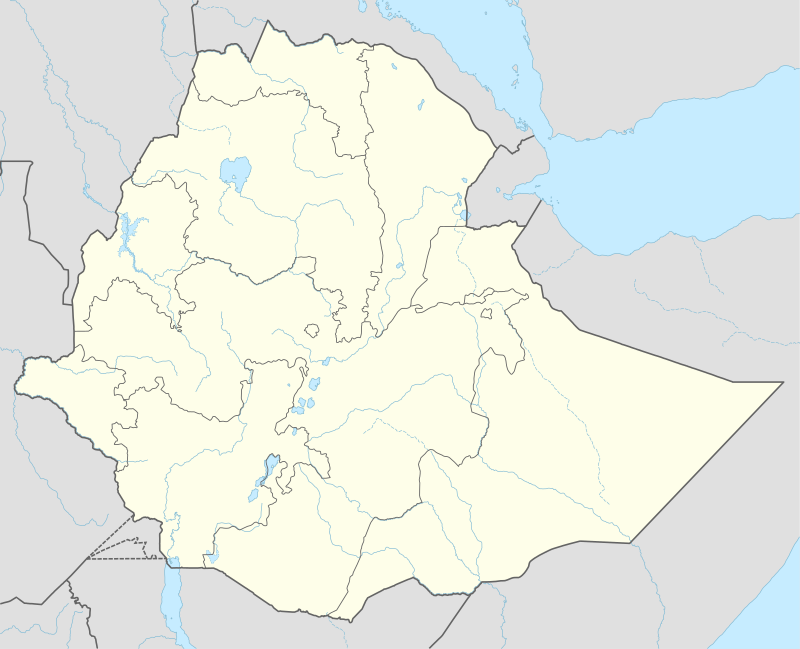Suftu
Suftu, also known as Melka Suftu or Melka Softu,[1] is a town in the Liben Zone of Ethiopia. It is located near the border with southern Somalia and the Mandera County in Kenya.[2] Other towns in Liben Zone include Dolo and Sathe.
Suftu Suuftu Softu | |
|---|---|
Town | |
| Nickname(s): Saudi Yarey | |
 Suftu Location in Ethiopia. | |
| Coordinates: 3°58′18″N 41°51′18″E | |
| Country | |
| Region | Somali |
| Zone | Liben |
| Woreda | Dolo Odo |
| Population (2006) | |
| • Total | 25,059 |
| Time zone | UTC+3 (EAT) |
| Area code(s) | 251 |
| Website | suftu.wordpress.com |
Demographics
Suftu is one of three towns in the Dolo Odo woreda border to Mandera County. Based on figures from the Central Statistical Agency in 2006, this town had an estimated total population of 25,059, of whom 13,366 are men and 11,693 are women.[3] The population has increased since 1997 when it was reported to be 16,801, of whom 8,830 were men and 7,971 women.[4] According to Chatham House, Suftu is predominantly inhabited by Somalis from the Hawiye Degodia and Garre clans which constitute the largest population.[2]
Economy
Suftu's principal economic activity is pastoralism. Chatham House notes that the town lies along major trading routes in Ethiopia used by Somali livestock merchants, which lead from the western and north-western parts of the country to Mandera in the North Eastern Province of Kenya.[2]
Education
As of November 2013, elementary education in Suftu is served by the Suftu Primary School.[5]
Transportation
Suftu has its own airport, which has a dirt landing area.[6]
Climate
Suftu has a dry climate. It is categorized as semi-arid under the Köppen climate classification (BSh). Temperatures tend to be hot throughout the year.[7]
Notes
- "Somali Regional State - Environmental Protection & Energy & Mines Resources Development Agency" (PDF). Government of Ethiopia. Retrieved 24 March 2014.
- Majid, Nisar. "Livestock Trade in the Djibouti, Somali and Ethiopian Borderlands" (PDF). Chatham House. Retrieved 24 March 2014.
- Table B.4. Population Size of Towns by Sex, Region, Zone and Wereda: July 2006. Central Statistical Agency. Archived at archive.org.
- 1994 Population and Housing Census of Ethiopia: Results for Somali Region, Vol. 1 Tables 2.4, 2.14 (accessed 10 January 2009). The results of the 1994 census in the Somali Region were not satisfactory, so the census was repeated in 1997.
- "Progress of Engage TB project in Ethiopia" (PDF). WHO. Retrieved 25 March 2014.
- "Airports in Ethiopia". University of Pennsylvania, African Studies Center. Retrieved 25 March 2014.
- Peel, M. C. and Finlayson, B. L. and McMahon, T. A. (2007). "Updated world map of the Köppen–Geiger climate classification". Hydrol. Earth Syst. Sci. 11: 1633–1644. doi:10.5194/hess-11-1633-2007. ISSN 1027-5606.CS1 maint: multiple names: authors list (link) (direct: Final Revised Paper)